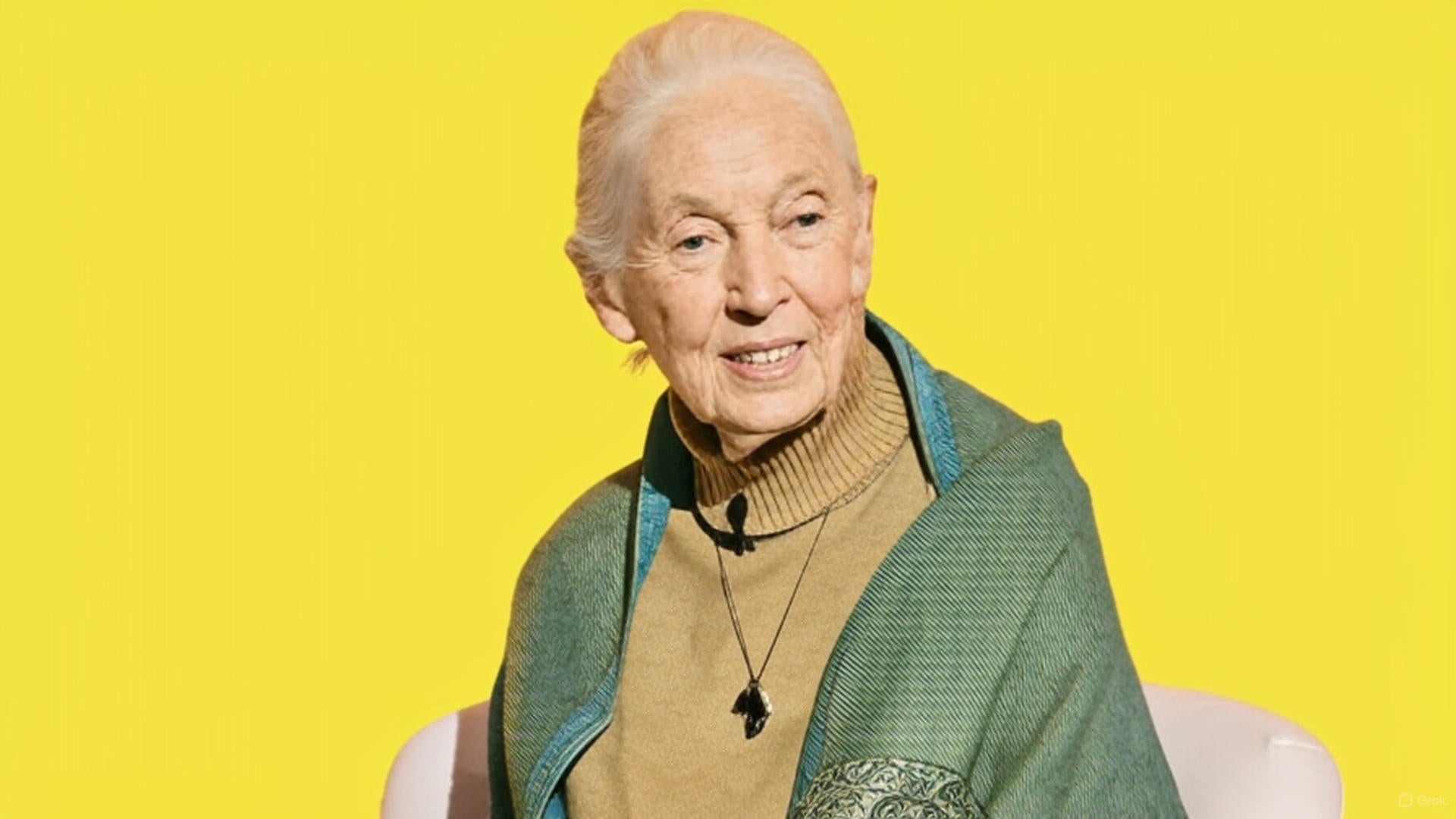Jane Goodall Dies at 91 — A Tribute & Deep Dive
Introduction
On October 1, 2025, the world lost a towering figure in science and conservation: Dame Jane Goodall, aged 91, passed away of natural causes while on a speaking tour. Her departure marks the end of an era—a life that revolutionized our understanding of chimpanzees, challenged human assumptions about nature, and inspired generations to act for the planet.
Dr. Jane Goodall, the world-renowned chimpanzee researcher, anthropologist, and conservationist, has died at 91. pic.twitter.com/l7rHHQOMrs
— IGN (@IGN) October 1, 2025
1. Early Life & Ascent into Science
-
Childhood & Curiosity
Born in London on April 3, 1934, Jane Goodall showed fascination with animals from a young age. She devoured books on wildlife, dreamed of Africa, and nurtured a curiosity that would define her life. -
Meeting Louis Leakey & the Gombe Expedition
In her 20s, she met anthropologist Louis Leakey, who recognized her thirst for understanding nature. He arranged for her to begin work in Tanzania at Gombe Stream in 1960. Although lacking formal academic credentials, she undertook immersive fieldwork among chimpanzees. -
Upending Scientific Dogma
At that time, many scientists believed tool use was uniquely human. Goodall’s observations of chimpanzees using sticks to fish for termites challenged this boundary. She also documented social behaviors, emotion, and personalities—ideas that forced the scientific community to reconsider rigid divides. -
Academic Recognition
Her work earned her a Ph.D. in Ethology—even though she had no undergraduate degree—testifying to the power of rigorous, original field research.
2. Landmark Discoveries & Contributions
A. Tool Use & Chimpanzee Intelligence
Goodall showed chimpanzees construct and use tools—a “breakthrough” that redefined assumptions about human uniqueness.
B. Naming Individuals
Instead of numbering, she named chimpanzees (e.g. David, Fifi), a decision rooted in empathy and providing relational depth to her studies.
C. Founding Institutions & Programs
She founded the Jane Goodall Institute in 1977 to support research, conservation, and community programs. Later, she developed Roots & Shoots, a youth empowerment initiative encouraging individual action for environmental and social causes.
D. Integration of Science and Advocacy
Later in life, Goodall melded empirical science with a message of hope and activism, calling for systemic change alongside personal responsibility.
Jane Goodall, known for her ground-breaking studies involving chimpanzees, has died aged 91 pic.twitter.com/hKJMmEIo7T
— Dexerto (@Dexerto) October 1, 2025
3. Passing & Global Mourning
-
Final Days & Cause
Goodall died of natural causes on October 1, 2025, during her speaking tour. Her passing was met with both shock and gratitude across scientific, environmental, and general communities. -
Tributes & Recognition
Leaders, colleagues, and admirers worldwide expressed sorrow and remembrance, emphasizing her role in reshaping how humanity sees itself and the natural world. -
Symbolic Events
Planned public speaking engagements and nature events evolved into memorials, reinforcing her lifelong emblem of hope, regeneration, and connection to nature.
4. Legacy & Continuing Influence
A. Redefining Human–Animal Boundaries
Her work invites us to see animals less as “others” and more as beings with intelligence, culture, and relationships.
B. Youth as Agents of Change
Through Roots & Shoots, she empowered millions—especially young people—to believe their small actions matter globally.
C. Hope with Urgency
Rather than descending into despair, she urged action rooted in optimism. Her later messages emphasized treating every day as an opportunity to protect life on Earth.
D. Interconnected Vision
Her life showed that conservation, empathy, science, community, and education are inseparable—not side projects but parts of a whole.
FAQs
Q1. When did Jane Goodall begin her chimpanzee research?
She began her fieldwork in 1960 at Gombe Stream with the support of Louis Leakey.
Q2. What was her most paradigm-shifting discovery?
Demonstrating that chimpanzees use tools—correcting the assumption that tool-use was uniquely human.
Q3. Is the Jane Goodall Institute still active globally?
Yes, it continues worldwide, supporting research, conservation, and youth-driven programs.
Q4. What awards did she receive?
She was honored with titles including Dame Commander of the Order of the British Empire, UN Messenger of Peace, and, late in life, the U.S. Presidential Medal of Freedom.
Q5. What is the core message she leaves behind?
That every individual can contribute, that empathy toward nature is essential, and that hope grounded in action is the way forward.
Conclusion
Dame Jane Goodall was more than a scientist or an activist—she was an ambassador between worlds, translating animal lives into lessons for humanity. Her passing at 91 is a profound loss, but her ideas and example endure.
She challenges us not to idolize, but to engage: to observe more, act wisely, cultivate empathy, and recognize that our survival is tied to the fate of the wild. Her legacy is not static—it lives in the curiosity we foster, the youth we empower, and the world we strive to protect.
In the end: we didn’t lose just a person. We inherited a responsibility—and an invitation.


0 comments